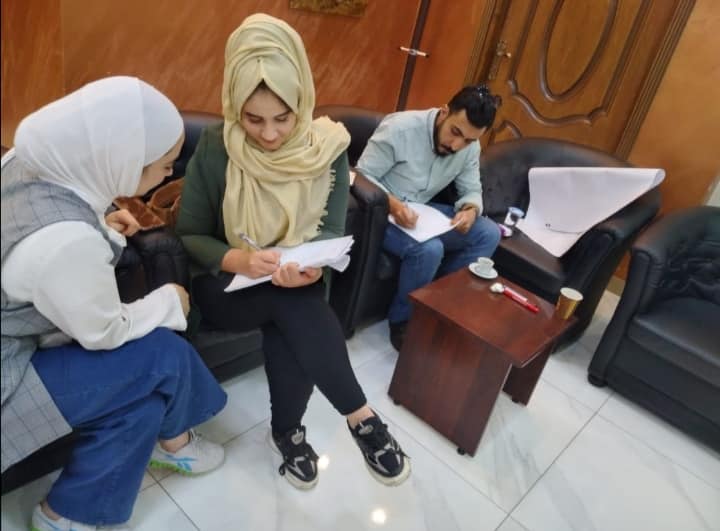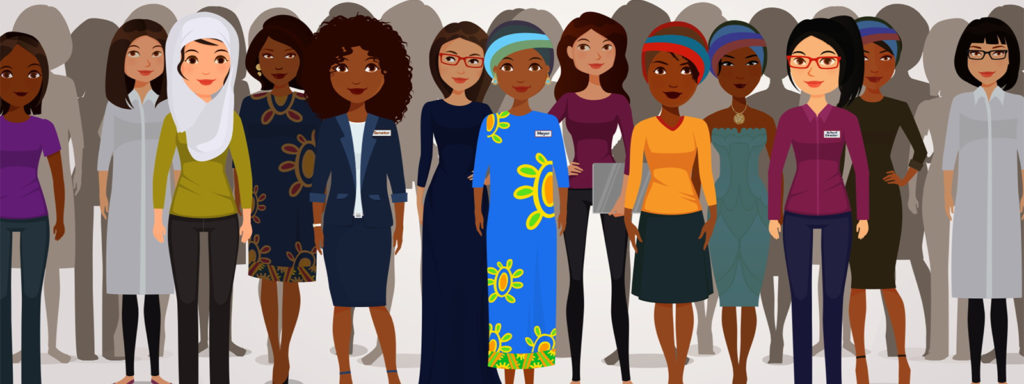In partnership with Hivos and funding from the Dutch MFA, the Young Women Christian Association (YWCA) in Madaba launched its training program on ‘Youth Shadowing Councils in Local Administration’ in cooperation with the Information and Research Center – King Hussein Foundation (IRCKFH).
The goal of the project is to make positive change through monitoring and supporting elected members to ensure that elected women are effectively participating in decision-making and that needs of women and girls are addressed at the local level.
Furthermore, the program seeks to empower youth and promote their active engagement in gender mainstreaming at the sub-national level in order to change the perception of the role of elected women. In addition, decision-makers in political parties and state institutions have been targeted and advised on the importance and need to strengthen women’s participation. Besides, target populations have been triggered to think positively about women’s political participation and leadership.
Gender mainstreaming in decision-making
In Jordan, the general public does not support women’s participation in the public life, and in politics in particular. Historically, “Jordanian women’s participation in political parties dates back to 1950s. However, political activism came to a halt in the period between 1957 and 1992. In 1992, the new Political Parties Law granted women the right to participate in political parties. Since then, women have become founding and active members of political parties, but their participation remained largely cosmetic and symbolic.” This goes back to the patriarchal system that dominates Jordanian culture, and according to which women’s major responsibilities are taking care of their families and households. As a result, their rights and priorities are not taken into consideration, especially that they rarely hold decision-making positions that enable them to give women’s rights priority. In order for things to change, the laws and legislation must be amended. For that sake, it is crucial that the youth join their forces to that of women. In that framework, the youth shadow councils will promote youth voting for women and engage the population in participating in the elections with a gender-sensitive mindset.
Youth shadowing project
20 young men and women were chosen from 3 different regions – Na’our, Husban and Madaba – to take part in this project, which is considered as one of its kind in Jordan. Before attending routine sessions with local municipal councils, female and male youth increased their knowledge on good governance, local administration laws as well as the decentralization law in order to monitor and observe elected members and advocate for women’s rights and gender equality.
Through coordinating with the local municipal councils – which were cooperative – the youth attended routine sessions in order to get a better understanding of the decision-making process and the topics discussed. While acting as observers, the youth became aware of issues relevant to the local populations after doing a visit to the field. In the closing ceremony of the project, major topics, as well as recommendations on how to address them, will be shared with the heads of municipal councils in order to encourage current decision-makers to take them into consideration and potentially come out with solutions on the long term. Furthermore, the youth will highlight the importance of supporting youth participation and the positive impact it has on society.
Learnings
The youth enhanced their knowledge on a number of topics such as public administration laws in Jordan; national strategies and the Sustainable Development Goals; gender mainstreaming; forming shadowing councils; and promoting the role of local councils. Furthermore, they had a hands-on experience in shadowing, which enabled to make a real difference in their local communities. Finally, councilor shadowing is a great opportunity for them to share their concerns and aspirations with local leaders. By engaging with young people, councilors will be exposed to their genuine enthusiasm to learn, coupled with the causes they are involved in locally.


